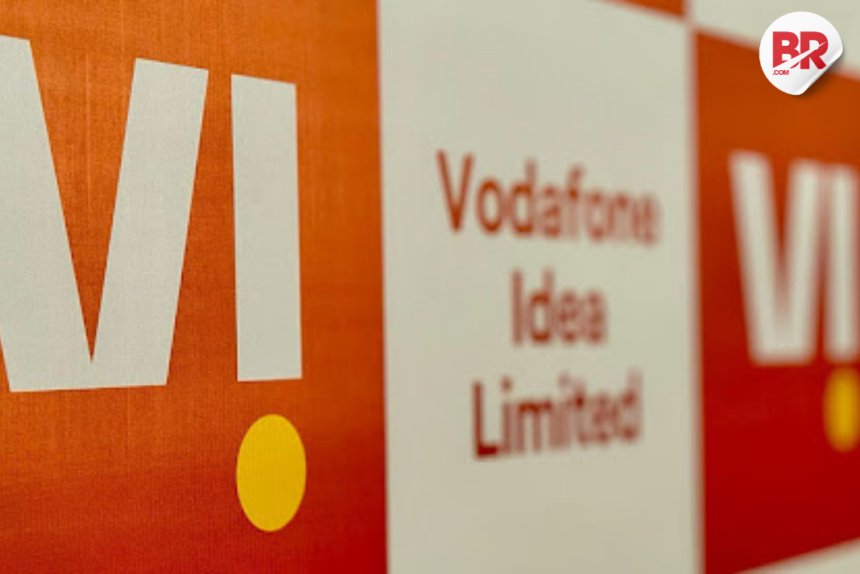
The Indian telecom sector has been buzzing lately, with Vodafone Idea (Vi) in the spotlight. Speculation surrounding the government’s potential increase in its stake in Vi has been swirling, but Union Minister Jyotiraditya Scindia has cleared the air. Here’s the scoop on his recent statements and what they mean for the future of the telecom giant.
No Plans for Government Stake Increase
In a definitive statement, Scindia put an end to rumors about the government possibly increasing its stake in Vodafone Idea. The Union Minister confirmed that there are no plans for the government to infuse more equity into the telecom company, even as it struggles with mounting debt.

This is a clear message: Vodafone Idea needs to rely on its own resources to navigate its financial troubles. The government is not in the business of bailing out private enterprises, especially when it comes to clearing dues or improving financial stability.
Also Read Govt Nears Majority Control of Vodafone Idea—Is This a Bailout or Takeover?
The Debt Crisis: A Major Hurdle
At the heart of Vodafone Idea’s financial woes is its outstanding debt. Scindia stressed that the company must clear these dues to stay afloat. Vi’s inability to address this financial burden has prevented it from making necessary investments in network upgrades and infrastructure. This puts the company at a significant disadvantage compared to rivals like Reliance Jio and Bharti Airtel.
So, what can Vodafone Idea do to pull itself out of this hole? Here are a few potential strategies:
- Operational Efficiency: Improving cost management and optimizing existing infrastructure can help reduce operational expenses.
- Revenue Diversification: Venturing into new revenue streams, such as enterprise solutions or digital services, can provide much-needed financial relief.
- Strategic Partnerships: Collaborating with tech firms and other telecom companies can offer both financial backing and technical expertise.
- Attracting Investments: Vi will need to prove its path to profitability to attract new investors who can help stabilize the company in the long term.
Starlink’s Entry and Satcom Norms
Scindia also addressed the entry of Elon Musk’s Starlink into India’s telecom market. He emphasized that the company will have to adhere to India’s strict satellite communications regulations.
Key requirements include setting up gateways in India, registering user terminals within the country, and ensuring compliance with all relevant laws.
These measures are crucial for maintaining national security and ensuring that foreign companies operate in alignment with India’s regulatory framework.
Also Read Airtel Just Leveled Up 5G with Adani’s Spectrum—Here’s Why It Matters for You
What This Means for the Telecom Sector
Scindia’s statements offer several important takeaways for India’s telecom landscape:
- Vodafone Idea’s Path Forward: With no government bailout in sight, Vi will need to prioritize debt reduction and focus on operational efficiency if it wants to survive. The company’s future is in its own hands now.
- Competitive Landscape: The lack of a government stake increase means that the rivalry between Vodafone Idea, Jio, and Airtel will continue to drive competition. Expect more aggressive pricing and innovation as each player tries to capture more market share.
- Regulatory Clarity: Scindia’s comments on Starlink serve as a reminder of the importance of regulatory compliance. Whether local or international, companies must adhere to India’s laws to stay in the game.
For the average consumer, this means that the future of their telecom services hinges on how well companies like Vodafone Idea can innovate and manage their debt. It also means more competition, which could lead to better service and pricing options.
Moving Ahead: The Road to Financial Stability
In the coming months, the focus for Vodafone Idea will be clear: reduce debt, optimize operations, and secure long-term investment. The company cannot rely on government intervention, and that could be a blessing in disguise, forcing it to find creative ways to thrive in a highly competitive market.
As for the government, the commitment to fostering a competitive environment is clear. The focus remains on creating a fair playing field where all telecom players can innovate and grow, but the onus is on the companies to pull themselves up by their bootstraps.
Scindia’s statement marks a critical moment for Vodafone Idea, as it sets the stage for the company’s next steps toward financial recovery. While the government has firmly ruled out increased stakes, it’s now up to Vi’s leadership to act decisively and chart a sustainable path forward.
Also Read Why Sterlite’s Demerger Could Reshape India’s Internet Landscape












